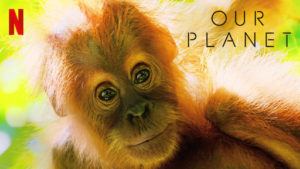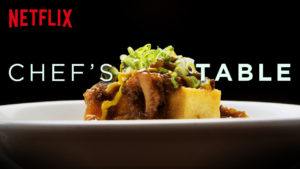Where is God when the Sanctuary Breaks you?
I have an anxious relationship with organized religion. I grew up in a West-Indian Seventh Day Adventist household and that came with a lot of baggage. Over the years of my life, I had to unlearn a lot of judgmental practices, open my heart and find God for myself. Within my house it was important that you went to church on Saturdays (sabbath observance). A day of rest that honestly, did not provide rest for me. A place that was supposed to help me relax, gave me anxiety attacks almost every week. I realized that the church I grew up in did not share the same values as I did, so when I transferred my membership to a church that did, I needed to slowly define who God was for me. On this search, once a month I would take a break from religious activities, flipped on Netflix and watch documentaries.
I found a way to adhere to the spiritual practices in a way that would not trigger me
I remembered how much I loved documentaries. Learning about people’s livelihoods, and how culture affects interpersonal interactions helped me appreciate the world around me more. It began with nature documentaries and seeing how wildlife gets affected by pollutants; watching the world gradually shift from normalcy. Truthfully, unless we’re consistently reading articles about climate change, we don’t understand the full extent as to how much our planet is being destroyed.
Reflecting on the Beauty We Lost: Our Planet

Our Planet was the first nature documentary I watched since high school. It gave amazing informational context to environments and the animals that lived there along with immaculate cinematography. What I enjoyed about this documentary is learning about apex predators and their relation to failure. When we imagine wolves and tigers, the first thing that pops up in our mind is how strong and ferocious they are.
People like to relate themselves to these creatures because they exude power, not realizing that their margin of failure is larger than any other creature in the animal kingdom. In order to eat, they must hunt for their prey and most of the time, they fail to catch them. When we fail, we’re afraid of the perception of weakness. How can we recover and become “strong” again, not recognizing that the moment of strength is always in our greatest moments of failure.
When it comes to spiritual practices, I don’t believe I was taught about how to appreciate nature in its failure. How connected our lives are to nature, whether we believe our traits are animalistic or not. I always learn about faith and failure from unlikely places.
Lively Cuisines Within Lively People: Chef’s Table

Anyone that knows me, knows I am always down for a great cooking documentary. One that reflects on the history of food and how it affects the communities around us. I learned about the importance of regional ingredients through watching food documentaries. I watched chefs take care of their communities utilizing the food they grew up with, manipulating them in experimental ways in order to create new experiences for their customers. The documentary series Chef’s Table gave me insight on how different foods garner different emotions and that food can be as spiritual as they are enjoyable.
One of my favorite episodes from the series is the one that highlights Buddhist nun Jeong Kwan. The episode discusses how certain ingredients relates to our bodies on a spiritual level. If food can influence how we feel, then it would be able to influence how our spiritual journey as it relates to our relationship with food. Food is always a conversation within religious and spiritual practices. What is allowed versus what is not. There’s a bunch of texts from various religious books about it, because we depend on it to survive. The ideology of a body being the vessel and food being a consistent transaction within our system. I learned about God from seeing people’s relationship to food. Food can offer so many gifts, but it also provides plenty of opportunities for vulnerability.
The Disheveled Separation of Church and State: The Family
One of the most surprising documentaries I ever watched had to be The Family. Not because the events themselves were surprising, but rather the audacity of it all. America likes to define itself as a “Christian Nation.” We see it in different ways with “Christian” holidays getting preferential treatment, certain businesses not operating on Sundays and etc. Therefore, is it surprising that America has powerful religious leaders running Washington within the comfort of the shadows? No. What was jarring was how easily folks are able to distort religious texts and use historical events to justify their injustices.
Sure, manipulating religious texts has happened consistently throughout history, each coming with its own form of genocide; but it doesn’t make it any easier to digest. Growing up, reading stories about King David and then seeing a community use it to justify the holocaust shows the drastic dissonance that must occur for these folks to achieve their goal. Watching the documentary made me reflect upon the different way religious freedoms are being taken advantage of and used as a form of power dynamics when interacting with members of our own community. It is easy to take any form of literature out of context whether it is linked to a belief system or not in order to oppress others. No belief system is void of extremism.
Watching The Family probably gave me anxiety because it reflected people’s genuine thoughts and then pressed it against a larger scale. The Family is: What would happen if your worst church leaders became leaders of the free world, everyone knows they are terrible, but you can do nothing about it. Yeah. Exactly.
I learned the most about God screens away from the sanctuary.
When I started watching documentaries every week, it was to solve my problems with social anxiety. I wanted time away from preaching that didn’t serve me. I wanted to learn about the creations and community of the God I wanted to grow so much with. The sanctuary was always there when I needed it. It took a certain form, had concrete regulations. When I need a song, I know where to go. When I need comfort and community I know where to go. But the moment I need to step back and appreciate what I was placed here for, where I needed to be was ironically right in front of a television screen.
Want to get Black Nerd Problems updates sent directly to you? Sign up here!
Follow us on Twitter, Facebook and Instagram!



Show Comments